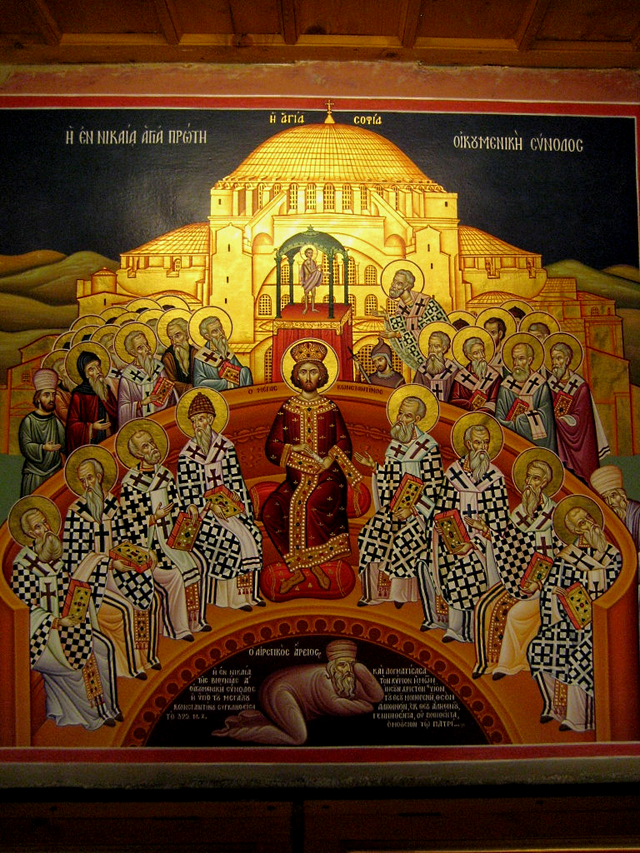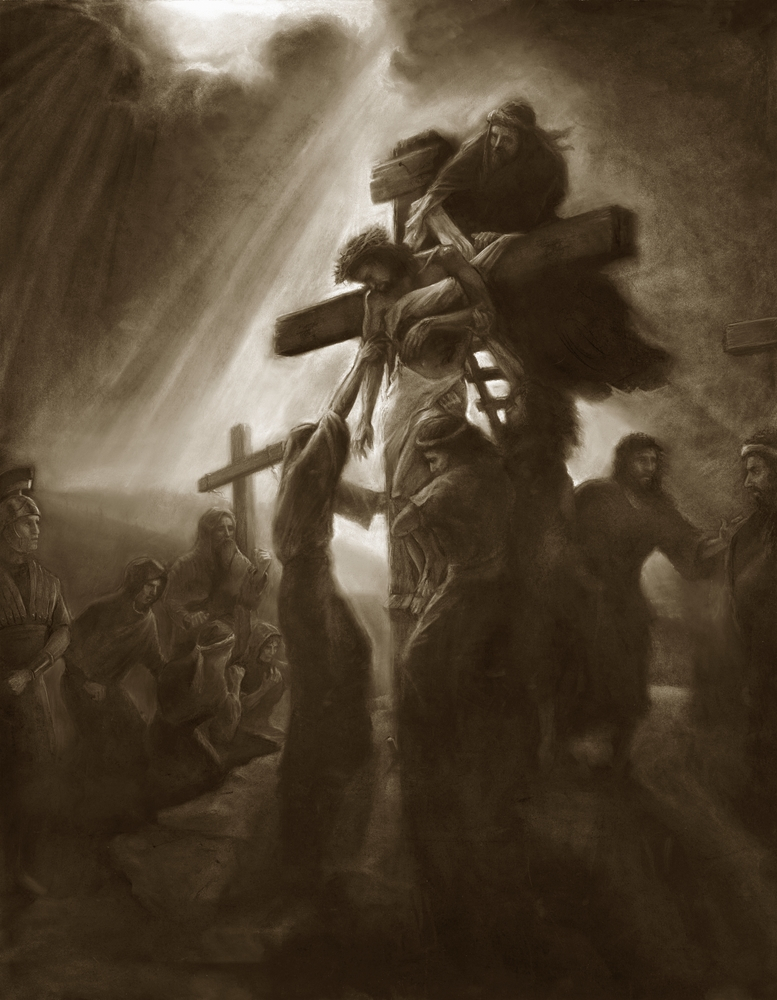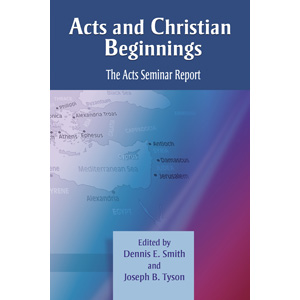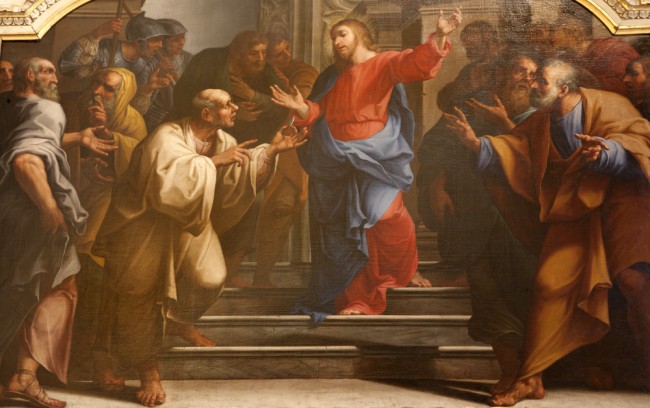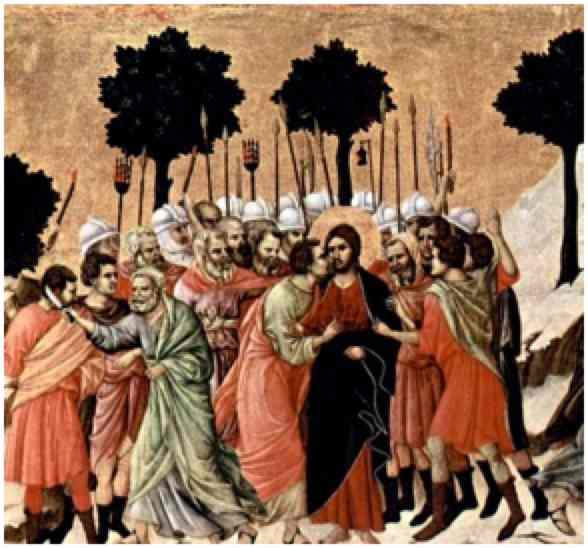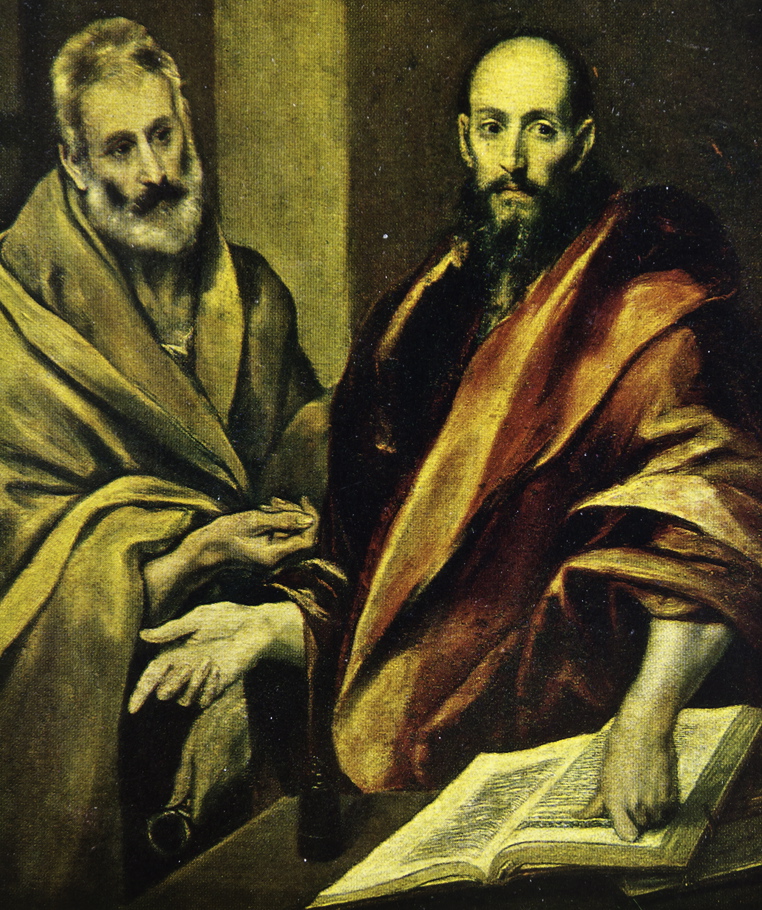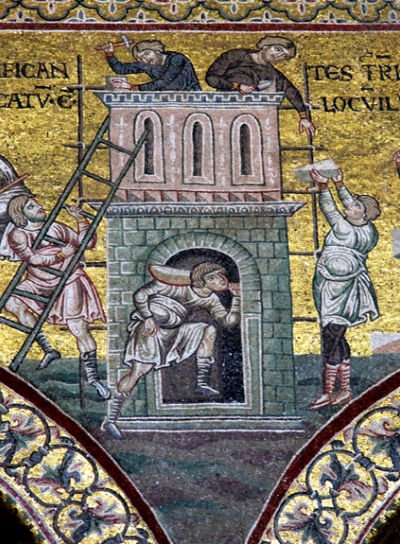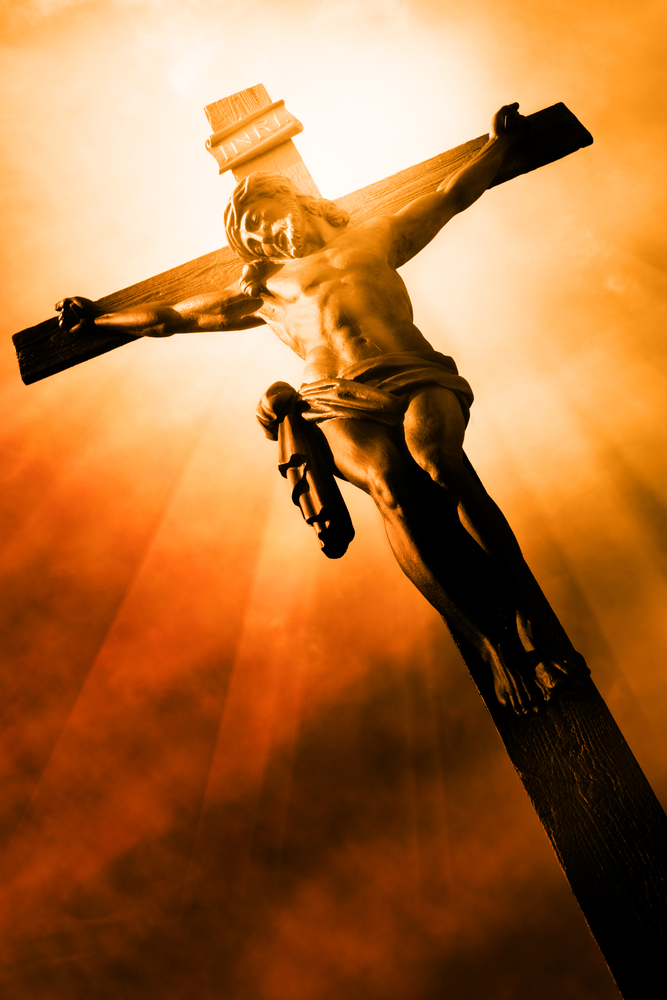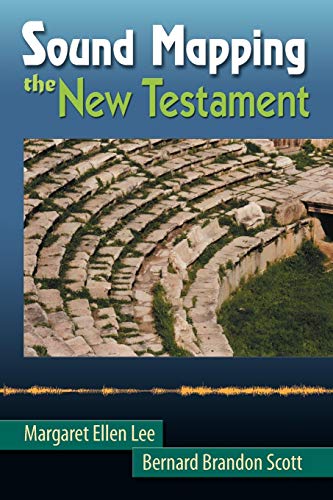A famous poet, William Wordsworth defined poetry as “emotion recollected in tranquility.” I wonder if it might be productive to apply that
One of the most serious theological conflicts in the history of Christianity occurred more than one thousand six hundred years ago. Known as
Hebrew Scripture’s View of Life after Death It wasn’t until after the Babylonian Exile that the Pharisees accepted the idea of heaven and
For Christians grace is God’s gift of pardon. According to William Barclay the Greek word for grace was originally a military term. When an emperor came to the throne or celebrated a birthday, he would give his troops a donatirim (donation), which was a free gift that they had not earned; it was given out of the goodness of the emperor’s heart. This idea was picked up by the Christian scripture writers when they wrote about the grace of God. Grace is something that is unearned and undeserved – unmerited pardon.
When it comes to the existence of the devil, people normally have one of two reactions: they dismiss the devil and scoff at the idea that there is such an entity, or they exalt the devil, and attribute far more to him (or it) than is deserved. In a recent Gallup poll, 70% of Americans believe in the devil. Half of those surveyed believe that he (this evil force is most often referred to in masculine terms) is a personal force, while the other half believes he is an impersonal force. Let us see what the Bible says about Satan, the devil and the evil one.
Eschatology is the study of last things, the final events in history, the ultimate destiny of humanity, the end of the world. Major issues in eschatology include the rapture, the second coming of Jesus, the tribulation, Millennialism, and the last judgment. Most of the Christian books I have read do not seriously concern themselves with eschatology, but the Left Behind series of books made it a popular topic. All twelve novels in the series made the New York Times bestselling fiction list – note: the fiction list. Prior to the Left Behind novels of the 1990s, Hal Lindsey’s 1970s bestselling books, including The Late Great Planet Earth, were also bestsellers.
The power of life that raised Jesus is accessible and available to all people, even those who have not heard of Jesus. The risen Christ, the cosmic Christ who is Lord of all can take many forms and answer to many names. Our text says that God shows no partiality, that anyone who fears God, and that does not mean to be afraid of God, but anyone who respects and honors God, and anyone who does what is right, anyone who does what is just and good and compassionate shares in the life of the risen Christ.
Judas Iscariot, the anti-hero of the story of the crucifixion, has been heaped with scorn and ridicule over the centuries. “Judas” is not used as a child’s name because it became the synonym for betrayal, for being a back-stabber. In Christian art, he is portrayed in dark, sinister tones. Events in western Christian history from the Inquisition in the fourteenth century to the expulsion of the Jews from almost every country of Europe at one time or another, to Martin Luther’s call for the burning of synagogues, to the violence and killing frenzy of the Holocaust in the twentieth century are all rooted substantially in Judas and because he was a Jew, applied to all Jews. Even his name is identical with the name by which the entire Jewish nation was known… Judas is simply a Greek spelling of Judah.
Acts was long thought to be a first-century document, and its author Luke to be a disciple of Paul—thus an eyewitness or acquaintance of eyewitnesses to nascent Christianity. Acts was considered history, pure and simple. But the Acts Seminar, a decade-long collaborative project by scholars affiliated with the Westar Institute, concluded that it dates from the second century. That conclusion directly challenges the view of Acts as history and raises a host of new questions, addressed in this final report.
Paul endorsed the Roman status quo, politically. He made the real issue identification with a descended (divine) savior, spiritually raised and soon to return. The Jerusalem group shared the last point but emphatically not the first two of Jesus' divinity nor acquiescence to Roman rule. Their expected Messiah (dramatically shifted after his death to a returning one) would establish peace with Jewish centrality and abolish the MILITARY dominance of other kingdoms but not the existence of other nations.
A Gospel of Non-violence in a Violent World
We wrestle with the stark reality of the culture of gun violence in which we find ourselves, and a gospel message for the progressive Christian that is inherently non-violent. Advocates for one side of a heated debate insist the only way to stop a bad guy with a gun is a good guy with a gun; which is only true if the good guy is faster on the draw and a better aim. To assert the good guy always wins is, of course, a lie. There are plenty of examples of murder and mayhem in that compendium of stories we call the Bible. In some stories the good guy wins. In others, they lose; particularly those who choose the way of non-violent resistance unequivocally taught and demonstrated in the words and deeds of the Galilean sage and healer. It’s not a matter of a showdown to see who wins with a more forceful argument. Far from naïve, impractical and unrealistic, a non-violent response may be the only thing to break the perpetual cycle of violence. But how?
But the loss of their key center and probably the main leadership and overall strength of the movement opened the way for Pauline Christian influence which is clear particularly in Luke (both his Gospel and Acts).
So in a round-about way, Gamaliel, as quoted by Luke, is giving us a powerful clue about what kind of literature the Gospels are — a unique mix of a few core historical events with lots of theological overlay, all blended with a good dose of the kinds of stories of miraculous signs that we know were common and sometimes persuasive in that day. And not surprisingly…. They still are today!
Giving Voice to Intolerance in an Age of Pluralism
The back story to the Tower of Babel myth is that the orignial plans called for anything but babble. But where once humankind may have all spoken the same language with one unifying plan to build a place all could dwell and abide one another, it has long since ever been the case. “We live in a pluri-verse, not a uni-verse,” says Raimon Panikkar. Ours is a pluralistic age in which we have many different and opposing – even sometimes mutually incompatible -- worldviews that threaten planetary human coexistence. In the midst of such chaos and confusion, how can we tolerate each other’s differences? Or, some might ask, should we even try? I consider myself a very tolerant person! The only people I cannot abide are ignorant and intolerant bigots! Does that make me intolerant as well, or merely principled? What would constitute a forbearance of principled intolerance, with a leniency of spirit? Here's John Bennison's latest Commentary from Words and Ways.
I've titled this as about the Resurrection, which is just one part of a complex of beliefs... but let's return and end there... What similarities or differences do you see in Paul's Resurrection statements and beliefs and those of the early Jerusalem Jesus-followers?
Pentecost is perhaps the first festival appropriated from an ancient tradition to serve the purposes of the new Christian Way.
In the Hellenistic world, writings were read aloud, heard and remembered. But modern exegesis assumes a silent text. The disjuncture between ancient...


